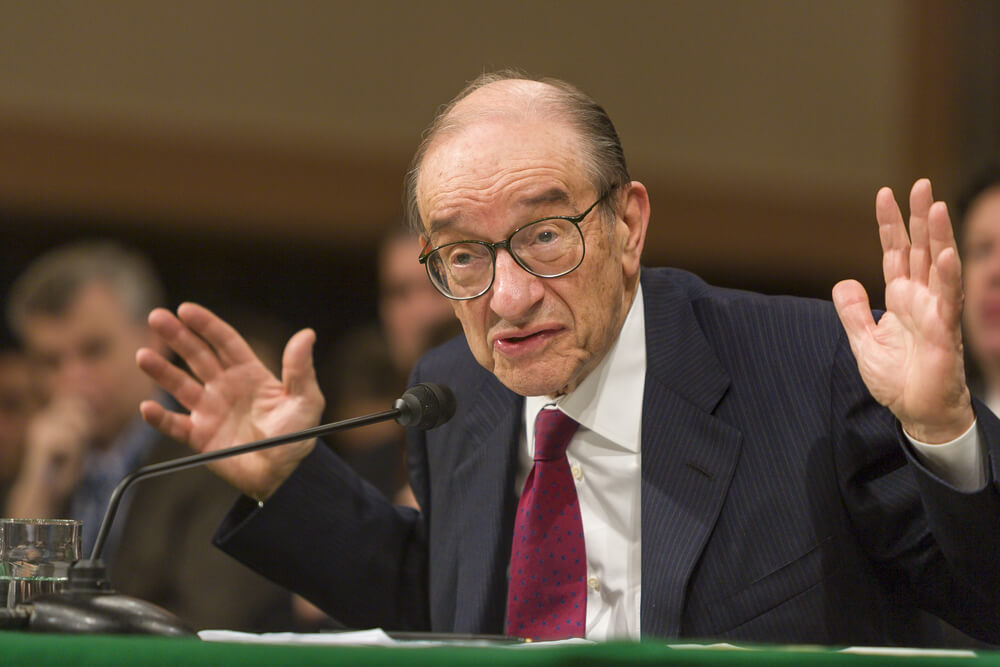Former Federal Reserve Chair Alan Greenspan said in an interview on CNBC on Wednesday it won’t be long before the global spread of negative interest rates reach the U.S., and whether we have a recession or not is “strangely” up to Wall Street.
“You’re seeing it pretty much throughout the world. It’s only a matter of time before it’s more in the United States,” Greenspan told CNBC’s “Squawk on the Street ” on Wednesday, adding that investors should watch the 30-year Treasury yield.
The yield on the 30-year U.S. Treasury sank to a record low 1.907% on Aug. 28, and was trading at just 1.95% Wednesday afternoon.
According to CNBC, there are currently more than $16 trillion in negative-yielding debt instruments around the globe, and the 10-year sovereign bonds in Belgium, Germany, France and Japan are trading with negative rates.
While U.S. Treasurys are staying positive, an aging population is pushing yields down, Greenspan said, adding that gold prices are on the rise because people are looking for hard assets they know will retain value. Gold futures are up more than 21% for 2019, trading at highs not seen since 2013.
“We’re so used to the idea that we don’t have negative interest rates, but if you get a significant change in the attitude of the population, they look for coupon,” Greenspan said. “As a result of that, there’s a tendency to disregard the fact that that has an effect in the net interest rate that they receive.”
As far as an incoming recession, Greenspan said the stock market will have the final word.
“Strangely enough, it’s going to depend in large part on the stock market,” Greenspan said. “We underestimate the wealth effect on the economy and this type of volatile stock market moves, it has an impact which I don’t think we fully understand nor measure correctly.
“I think it’s important to recognize that if we get a major stock market adjustment, we are going to feel it in the economy, which has very short leg.”
Greenspan led the U.S. Federal Reserve from 1987 to 2006 and he called the ongoing trade war between the U.S. and China a “major global issue” that is “eroding” the global economy.
The Dow suffered its worst month of the year in August due to trade war angst, and U.S. manufacturing contracted for the first time since 2016.



